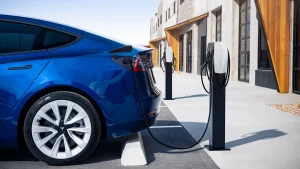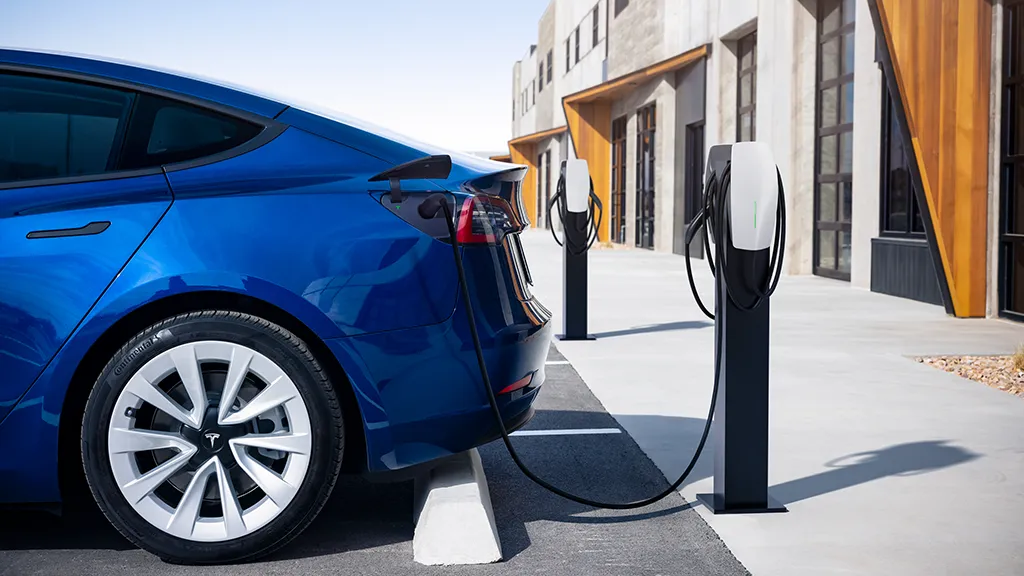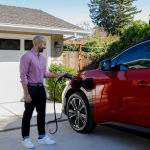As electric vehicles (EVs) gain popularity worldwide, Virginia is emerging as a key player in the EV market. Commercial property managers—overseeing office buildings, shopping centers, hotels, and multifamily residences—face a significant opportunity to attract customers, enhance employee satisfaction, and achieve sustainability goals by installing EV charging stations. This article explores EV charging solutions for commercial properties in Virginia, including available incentives, charger types, service providers, relevant regulations, and steps to get started.

Why Do Commercial Properties Need EV Charging Stations?
The growing adoption of EVs presents new business opportunities for commercial properties. According to Atlas EV Hub, Virginia’s EV registrations are increasing annually, though its adoption rate lags behind states like California but surpasses states like North Dakota. Installing charging stations can:
-
Attract Customers and Employees: Provide convenience for EV drivers, enhancing property appeal.
-
Generate Revenue: Earn additional income through charging fees.
-
Support Sustainability: Demonstrate environmental commitment, aligning with Virginia’s new emission standards and EV sales targets.
-
Future-Proofing: Investing in charging infrastructure now avoids costly retrofits as the EV market grows.
Incentives and Programs in Virginia
Virginia offers several programs to help commercial properties reduce the cost of installing EV charging stations. Below are key initiatives:
|
Program/Incentive |
Details |
|
|---|---|---|
|
Dominion Energy Smart Charging Infrastructure Pilot |
Up to $15,000–$109,000 in rebates for multifamily, workplace, and public DC fast charging stations |
|
|
Rural Reimagined |
Free DC fast chargers and Level 2 chargers for rural Virginia communities, plus discounted installation |
|
|
Charlottesville EV Charging Infrastructure Grant |
Supports public chargers near commercial/retail areas, requiring reasonable fees and open hours |
|
|
Charge Up Fairfax County |
Up to $5,000 reimbursement for charging equipment installation for HOAs/COAs |
|
|
Alternative Fueling Infrastructure Tax Credit |
Up to 30% or $100,000 of infrastructure costs, with direct pay for government/nonprofits |
|
Additionally, the federal Infrastructure Investment and Jobs Act provides further funding for Virginia’s charging infrastructure, such as grants awarded to Henrico County and the District of Columbia Government Commission.
Types of EV Charging Stations for Commercial Properties
Commercial properties should select chargers based on their customer base and parking patterns. Below are the main types and their applications:
-
Level 2 Chargers:
-
Voltage: 240V (residential) or 208V (commercial).
-
Charging Time: 4–10 hours for battery electric vehicles (BEVs), 1–2 hours for plug-in hybrids (PHEVs).
-
Applications: Workplaces, shopping centers, multifamily residences, or other locations with multi-hour parking.
-
Advantages: Lower installation costs, suitable for most commercial properties.
-
-
DC Fast Chargers (DCFC):
-
Charging Time: 20 minutes to 1 hour to 80% for BEVs.
-
Applications: High-traffic areas like highway corridors or commercial hubs.
-
Advantages: Fast charging attracts customers needing quick service.
-
Disadvantages: Higher installation and operational costs.
-
According to GreenKey EV Charging Solutions, Level 2 chargers are ideal if customers stay longer than an hour, while DC fast chargers suit shorter stays.
Companies Providing EV Charging Solutions
Several companies offer EV charging solutions for Virginia’s commercial properties, covering hardware, software, installation, and maintenance:
-
Blue Whale EV (Blue Whale EV):
-
Focuses on attracting customers, retaining employees, and generating revenue.
-
Offers customized charging solutions.
-
-
EV Connect (EV Connect):
-
Approved vendor for Dominion Energy’s SCIP program.
-
Provides end-to-end solutions from chargers to software.
-
-
JSOWELL EV Charger (JSOWELL Charging):
-
Offers Level 2 and DC fast charging solutions.
-
Provides flexible business models, including owner-operated and fully managed solutions.
-
-
GreenKey EV Charging Solutions (GreenKey):
-
Virginia-based provider of installation and maintenance services.
-
Offers fast, high-power chargers for various commercial properties.
-
-
Volta Charging:
-
Provides free charging stations at shopping centers and commercial areas, funded by advertising revenue.
-
Contact: mike.dennehy@voltacharging.com
-
-
EVMatch:
-
Installs chargers at multifamily properties as part of the Rural Reimagined project.
-
Contact: heather@evmatch.com
-
Virginia Regulations and Laws
Virginia has enacted several regulations to support EV charging infrastructure deployment:
-
Homeowners Associations (HOAs) and Condo Associations: Cannot prohibit personal EV charger installation in designated parking spaces but may impose restrictions on installation methods, insurance requirements, etc.
-
Tax Benefits: Alternative fuels (including electricity) are taxed at the same rate as gasoline, but local governments may exempt EVs from personal property taxes.
-
Building Requirements: New buildings over 5,000 square feet or renovations exceeding 50% of the property’s value must include EV charging infrastructure, unless located within interstate highway system rights-of-way.
-
Green Banks: Local governments may establish green banks to promote clean energy investments, including EV infrastructure.
These regulations provide legal support for commercial properties, ensuring charger installation and operation align with state policies.
State-Level Initiatives
The Virginia Department of Transportation (VDOT) is actively expanding EV charging infrastructure:
-
Charger Locations: Identified 18 charging station sites covering I-95, I-81, the Richmond area, and more, supported by approximately $100 million in federal funding.
-
Federal Support: The Infrastructure Investment and Jobs Act provides additional resources for Virginia’s charging network expansion.
These initiatives demonstrate Virginia’s commitment to building a statewide charging network, creating more opportunities for commercial properties.
EV Adoption in Virginia
While specific data on Virginia’s EV adoption is limited, the following provides context:
-
Current Trends: According to Atlas EV Hub, Virginia’s EV registrations are growing annually, with county-level data available through its database.
-
Comparison with Other States: Virginia’s adoption rate is lower than California’s (21.1% EV market share in 2023) but higher than North Dakota’s (1.1%).
-
Future Projections: Nationally, EVs are expected to account for 70% of new vehicle sales by 2035. Virginia’s growth is projected to remain steady, driven by incentives and infrastructure development.
For detailed data, refer to EVAdoption.com, which provides state-level market share analysis.
How to Get Started?
Installing EV charging stations for commercial properties involves the following steps:
-
Assess Needs: Determine parking capacity, power supply, and target users (customers, employees, or tenants).
-
Select Charger Type: Choose Level 2 or DC fast chargers based on dwell times.
-
Apply for Incentives: Contact Dominion Energy, Rural Reimagined, or other programs to secure rebates.
-
Choose a Vendor: Partner with companies like JSOWELL EV Charger Manufacturer or EV Connect for tailored solutions.
-
Ensure Compliance: Adhere to Virginia’s regulations and building requirements.
-
Optimize Operations: Install chargers in visible locations, offer user-friendly features like mobile payments, and monitor usage to adjust pricing.
Best Practices:
-
Select high-visibility locations to attract users.
-
Use chargers supporting the Open Charge Point Protocol (OCPP) for compatibility and future scalability.
-
Regularly maintain chargers to ensure reliability.
Conclusion
In Virginia, EV charging solutions offer significant business and environmental benefits for commercial properties. By leveraging Dominion Energy rebates, federal tax credits, and professional services, property managers can seamlessly deploy charging stations, attract more customers, and prepare for the future. With the EV market continuing to grow, now is the ideal time to invest in charging infrastructure. Contact JSOWELL EV Charger Manufacturer or relevant vendors today to start your EV charging journey!


